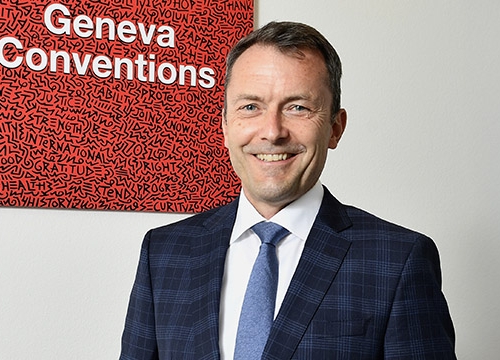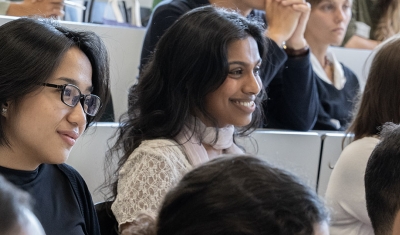Opening Lecture by Ambassador Jürg Lauber
Event


EDA-DFAE (FDFA)
The United Nations Human Rights Council: A Body of Law or Politics?
The United Nations Human Rights Council plays a vital role in the global promotion and protection of human rights. However, it faces growing challenges as it navigates between its fundamental legal mission and the political influences that impact its operations. These geopolitical tensions reflect the complexity of advancing human rights within an international system characterised by divergent interests and national priorities.
Switzerland’s re-election to the Human Rights Council for the 2025-2027 term, after a six-year absence, underscores its long-standing commitment to human rights and multilateralism. This election, along with the appointment of Ambassador Lauber as President of the Council – a first for Switzerland – highlights the recognition of its active role in fostering constructive dialogue between states.
During this conference, Ambassador Lauber will examine the challenges and opportunities facing the Council as it strives to balance legal imperatives with geopolitical realities. This reflection is rooted in Switzerland’s policy to strengthen international mechanisms and the broader human rights system.
Speakers
The main speaker for this conference will be:
- Jürg Lauber, President of the United Nations Human Rights Council
The conference will also feature the following distinguished speakers:
- Paola Gaeta, Director of the Geneva Academy of International Humanitarian Law and Human Rights, andProfessor at the Geneva Graduate Institute
- Christian Bovet, President of the Geneva Academy Board and Honorary Professor at the University of Geneva
- Nathalie Fontanet, President of the State Council of the Republic and Canton of Geneva
- Marie-Laure Salles, Director of the Geneva Graduate Institute
- Audrey Leuba, Rector of the University of Geneva
- Andrew Clapham, Professor at the Geneva Graduate Institute
Reception
A reception will follow the presentation.
Disclaimer
This event may be filmed, recorded and/or photographed on behalf of the Geneva Academy. The Geneva Academy may use these recordings and photographs for internal and external communications for information, teaching and research purposes, and/or promotion and illustration through its various media channels (website, social media, newsletters, annual report, etc.).
By participating in this event, you are agreeing to the possibility of appearing in the aforementioned films, recordings and photographs, and their subsequent use by the Geneva Academy.








